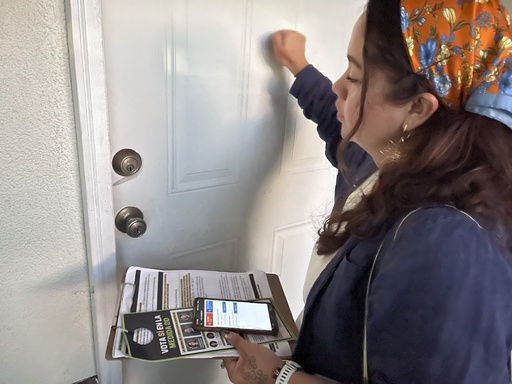
SANTA ANA, Calif. — Residents in Santa Ana, a city situated in Orange County, Southern California, dismissed a ballot initiative aimed at granting voting rights in local elections to non-U.S. citizens.
The proposal, known as Measure DD, was turned down by 60% of those who participated in the election, as reported by local news sources. Santa Ana is a community of approximately 310,000 individuals, located southeast of Los Angeles, predominantly comprised of Latino residents who historically favored Vice President Kamala Harris over President Donald Trump in earlier elections. This recent rejection could suggest a potential shift in perspectives, particularly among Latino voters concerning immigration issues.
Jon Gould, who serves as the dean of UC Irvine’s School of Social Ecology, noted that the results align with a broader trend where Latino communities are becoming more conservative regarding immigration topics. This evolving stance among voters may be indicative of changing sentiments in the community around citizenship and the rights associated with it.
The measure encountered substantial opposition from local leaders and various conservative organizations, including the Policy Issues Institute. Critics argued that its approval would not only be costly and open up avenues for legal disputes but also undermine the rights of citizens.
Carlos Perea, an advocate for immigrant rights who supported Measure DD, mentioned that these opposing groups reacted strongly, possibly out of fear. He highlighted how the results of this vote may reflect the influence of former President Trump’s rhetoric, particularly his fierce campaigning against illegal immigration.
Voting in federal elections is legally restricted to U.S. citizens, and while concerns over voter fraud have been raised by Republican figures, there is no substantial evidence of widespread illegal voting either by citizens or noncitizens. Nonetheless, the perception that voter security needs strengthening remains a pivotal point of debate among some political circles.
Conversely, an increasing number of communities throughout the United States have been enacting supportive measures that allow noncitizens to cast votes in local elections—like city council and mayoral races. Advocates assert that it is justifiable for these residents to have voting rights given their contributions to the community through taxes and their involvement in local life.
A notable example is San Francisco, which approved Proposition N in 2016, permitting noncitizens with children under 18 to participate in school board elections, succeeding despite previous attempts being denied in 2004 and 2010. Other states, including Maryland and Vermont, have also permitted noncitizen voting at the local level. Most recently, in 2022, New York City granted local voting rights to noncitizens; however, the implementation faced legal challenges and was halted by a state judge, with efforts underway to appeal that ruling.
